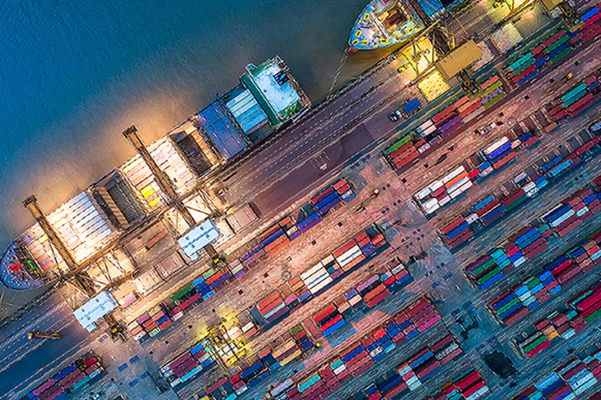MacGregor in 2022 - orders increased, challenges in offshore
The demand for MacGregor’s solutions increased in 2022, reflecting the high level of merchant ship contracting during the previous year. The challenges continued in the offshore segment.

MacGregor’s orders received in 2022 were EUR 976 million, and sales amounted to EUR 569 million. The comparable operating profit decreased to EUR -36 million. The decrease was due to cost overruns in projects related to new technologies in the offshore business.
The level of merchant ship contracting increased in 2022, having a positive effect on MacGregor’s order book. While the overall merchant ship new build investments somewhat declined from 2021, there was an upward cycle in several vessel types, such as Pure Car and Truck Carriers (PCTC). Among these important MacGregor orders were two orders from Höegh Autoliners RoRo equipment for multi-fuel and zero-carbon-ready Aurora class vessels.
“The orders from the PCTC segment within our portfolio are important, and they also illustrate how MacGregor is recognised as the major player in the industry,“ says Leif Byström, President, MacGregor.
“The Höegh Autoliners order means that we are actually clearly the dominant player on the market. From a market share point of view, it shows that we are here to stay. The PCTC part of the business is important both on the newbuilding but also on the after sales business.”
In the offshore segment, the project execution challenges continued, creating cost overruns and affecting MacGregor’s result negatively.
“The challenges have continued within the offshore projects, and that has of course resulted in the negative profit impact, coming from the investment projects but also from the miss-outs,” says Leif Byström.
On the other hand, MacGregor is also expanding on the offshore segment, for instance, having entered into offering sustainable solutions for the offshore wind tower installation vessels. This highlights MacGregor’s role, not only in terms of service and the service vessels but also in the wind installation area. In addition, MacGregor continues to improve the performance in the offshore segment with internal actions.
“Our merchant and services businesses are profitable and stand for about 90 percent of our sales. In the offshore segment we have initiated a restructuring programme, and that is something we work with really hard on.”
Excluding the offshore wind business, MacGregor's comparable operating profit margin in 2022 would have been around 3 percent.
An extraordinary year both globally, and for MacGregor
In February 2022, Russia started its attack against Ukraine. Covid restrictions in China put a challenge on supply chains particularly in spring, while the energy price inflation impacts became clearer across Europe towards the rest of the year. During the whole year, these caused strong negative effects to the global economy and market at large, and they also affected MacGregor.
“From the overall geopolitical point of view, I would say the market and the market within the maritime side has changed a bit. I mean, there hasn't been the same number of orders as the year before.”
“At the same time, we have a rather wide portfolio which has been supporting us. For instance, the PCTC vessel orders, like mentioned above, have been a favourable thing for us in that sense,” says Leif Byström.
Sustainability and R&D are important to MacGregor
In 2022, MacGregor continued its determined investments in developing sustainable and energy-efficient solutions for its customers. One of these was its condition-based and predictive maintenance service OnWatch Scout, for which MacGregor received the 2022 SMART4SEA Technology Award.
“This award shows the strength that we have inside MacGregor, and what we can actually provide to the customer - not just a new product, but also something for the longer sustainability period. This is something that customers can use during the whole lifetime of the ship.”
During the year, MacGregor launched a fully electrically driven heavy-duty transloading crane. The crane consumes approximately 60 percent less energy, compared to a hydraulic drive system, reducing CO2 emissions by almost 6,000 tonnes within a typical lifecycle of a hydraulic crane.
“We have many different solutions and products where we have built on electric drives and other similar systems. I am really proud that we have been able to, as an example, now have a new version of this heavy lift crane. The electric drive in this crane brings a huge improvement compared to our previous systems.”
Cautiously optimistic about the future
During the last decade or so, the global maritime industry has experienced rough times, with the merchant ship market having had a down cycle for the longest time in recent history. While the industry is not out of the woods just yet, MacGregor’s President Leif Byström sees positive signs ahead.
“If you look at this industry, it has been rather down but, when it comes to the ship orders and ship activities, has been moving upwards lately. And this will continue. We have one very important driver, and that is that many of the customers are now changing their fleet, moving into a more sustainability-driven [operational mode].”
“If you look at the statistics, about 800 ships have been scrapped per year. Now it is estimated that this is going to take off rather soon. Our estimate is that this is coming up to about 2,000 vessels per year. So I see a very positive future in the market.”
